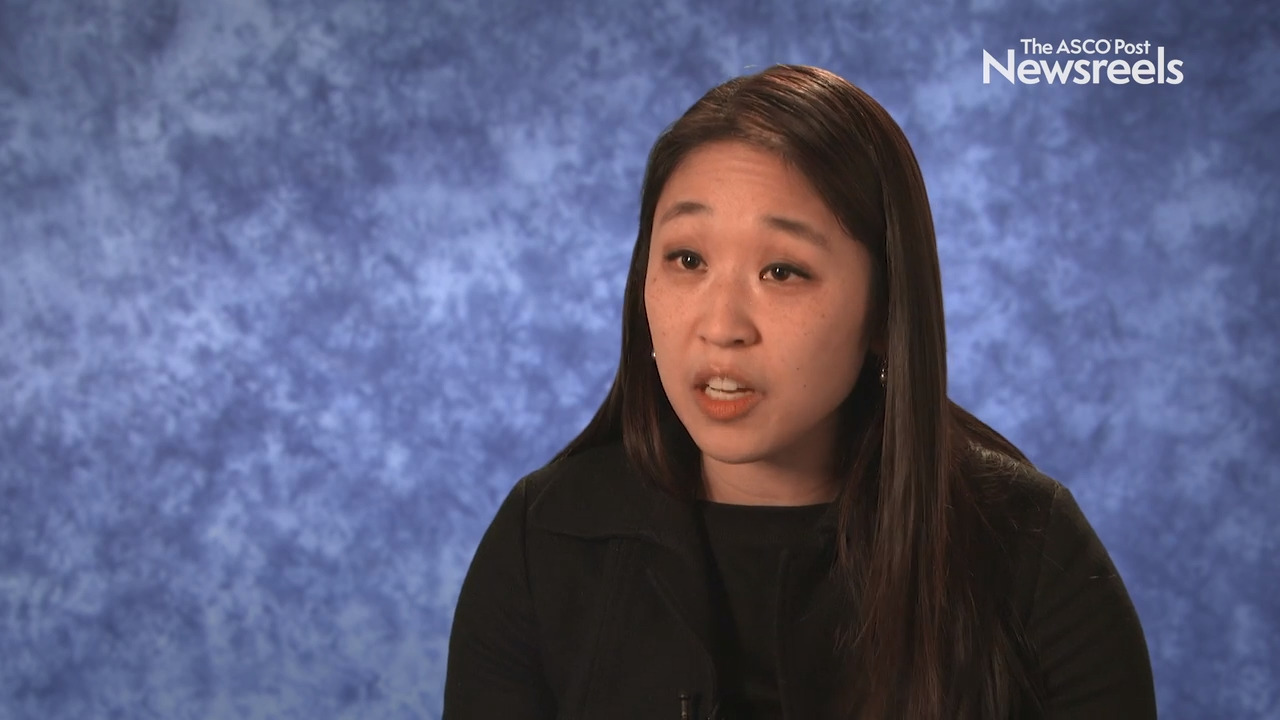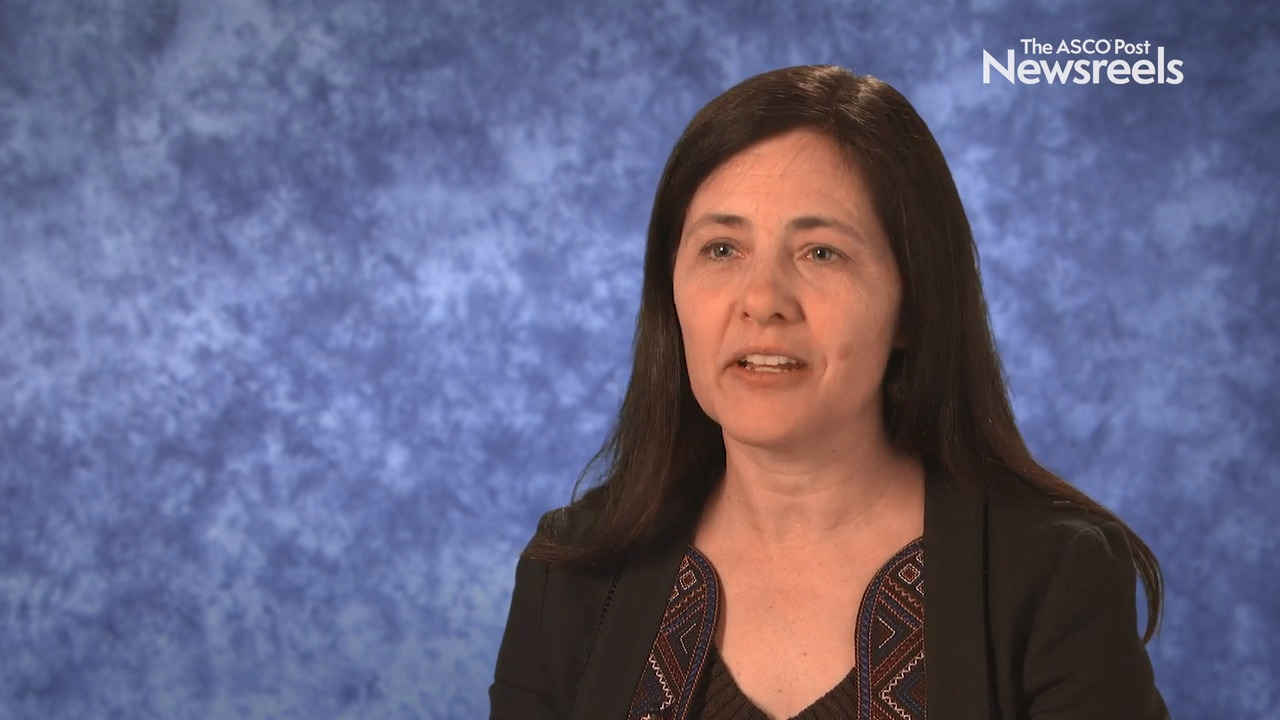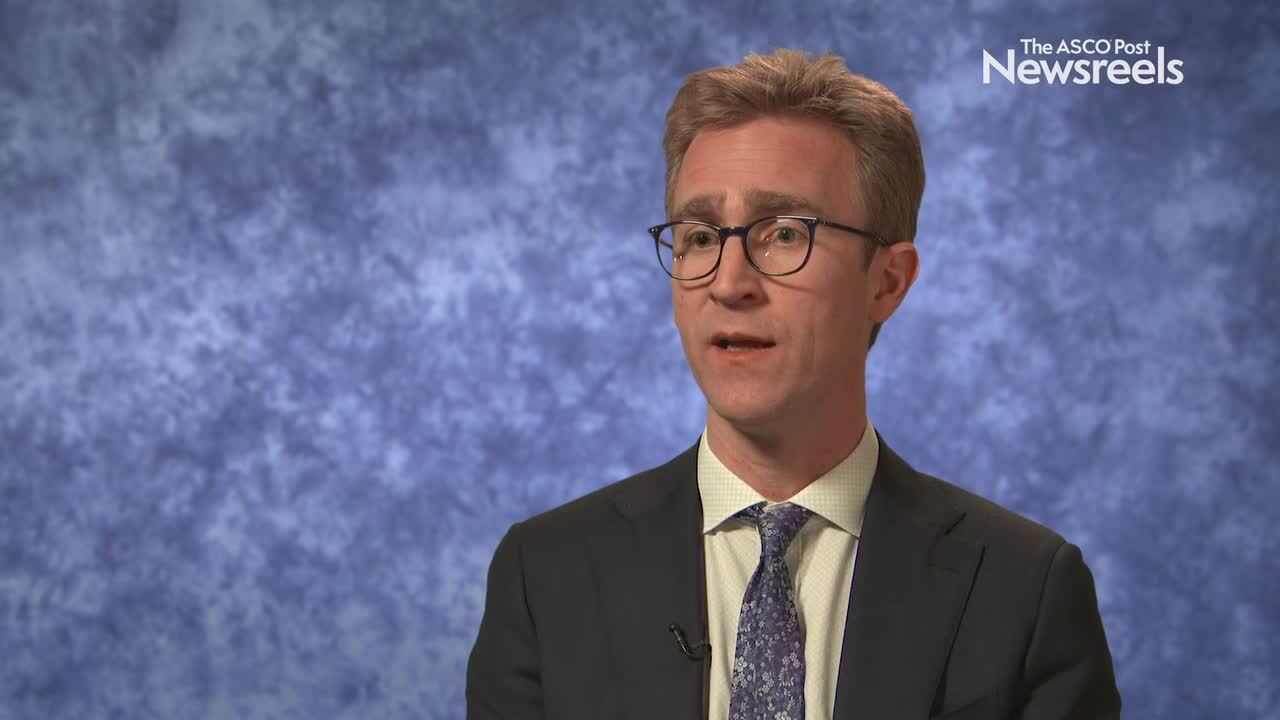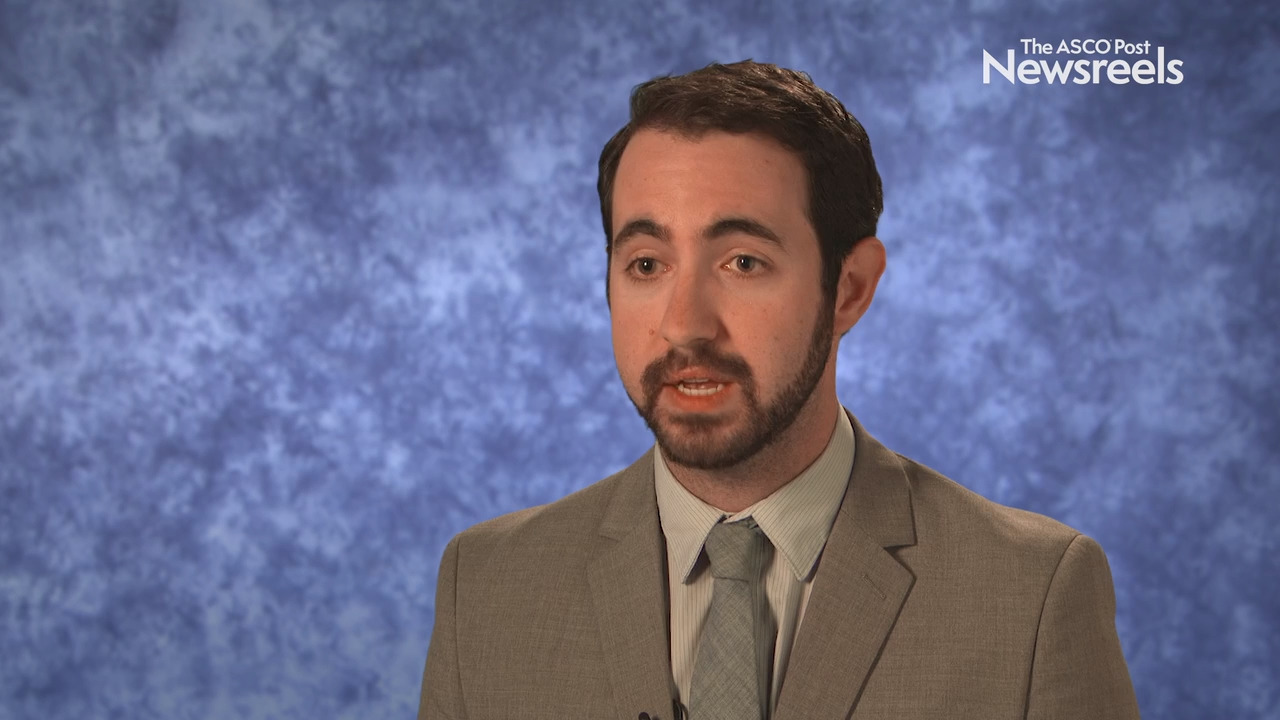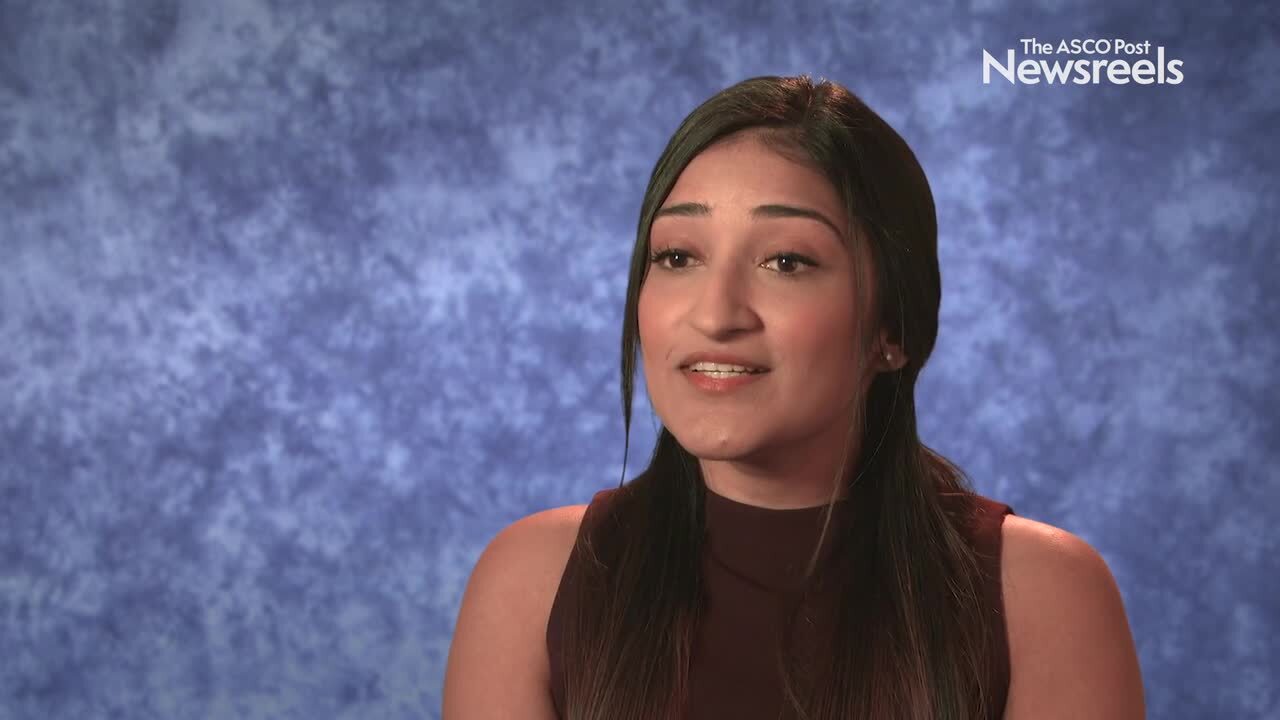J. Fletcher Drogos, MD, on Multiple Courses of Stereotactic Body Radiation Therapy: Outcomes in Patients With Lung Cancer
2019 Multidisciplinary Thoracic Cancers Symposium
J. Fletcher Drogos, MD, of Rush University, discusses study findings on overall survival and toxicity among patients who undergo multiple radiation treatments for lung cancer.
Susan Y. Wu, MD, of the University of California, San Francisco, discusses how patient exposure to treatment guidelines improved smoking cessation counseling and the use of molecular testing, and decreased the use of adjuvant chemotherapy in patients with early-stage disease (Abstract 5).
Heather A. Wakelee, MD, of Stanford University, discusses the most recent FDA-approved tyrosine kinase inhibitors that target EGFR and ALK mutations, how these agents fit into the treatment landscape, and the rapidly evolving field of TKI resistance.
Aaron S. Mansfield, MD, of the Mayo Clinic, summarizes a session he moderated on rare thoracic cancers such as mesothelioma and thymic epithelial tumors, as well as novel imaging and treatments in neuroendocrine tumors.
Kyle F. Concannon, MD, of the University of Washington/Seattle Cancer Care Alliance, discusses study results on the delays in biopsy after radiographic findings among homeless vs housed patients with lung cancer, and the higher rates of missed appointments following diagnosis (Abstract 125).
Shraddha M. Dalwadi, MD, MBA, of Baylor College of Medicine, discusses the nearly 12% of potentially curable patients with stage I NSCLC who do not receive treatment, the various socioeconomic reasons why, and how some patients may benefit from minimally invasive therapies (Abstract 127).
